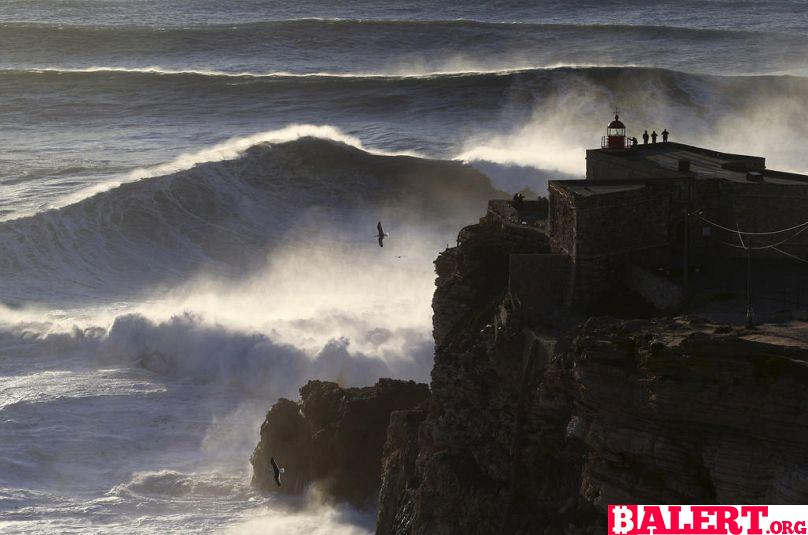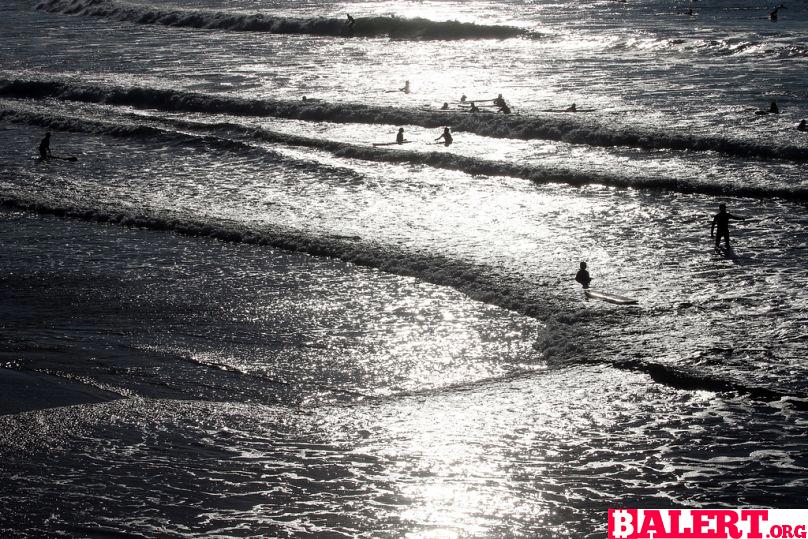World
New Parliamentary Mandates and the Urgent Call for Ocean Protection in Europe
Explore the latest parliamentary mandates in Europe and their critical implications for ocean protection. Discover the urgent calls to safeguard marine ecosystems and the policies shaping a sustainable future for our oceans.

New Parliamentary Mandates and Environmental Challenges

The newly elected and re-elected parliamentarians are embarking on their mandates in Brussels, setting the stage for the European Parliament’s committees before a well-deserved summer break. Many may find themselves seeking relaxation along the coast, perhaps enjoying a refreshing mocktail on the beach. But amidst the bustling corridors and the high-stakes parliamentary sessions, do the EU’s new decision-makers fully grasp the profound environmental shifts lurking beneath the surface?
The European Environment Agency has identified the risks to coastal and marine ecosystems as among the most severe challenges facing the continent, signaling an urgent need for action. Europe is already grappling with rising sea levels and record-breaking temperatures, with the three hottest years on record occurring since 2020. Last year, European sea surface temperatures soared to a staggering 5.5°C above average, a situation that poses risks not only for coastal communities but also for the millions dependent on the EU’s blue economy. Human health, food supply chains, and livelihoods across the continent are all intricately connected to the health of our oceans. Yet, despite these alarming indicators, decisive action to mitigate or adapt to these changes has been conspicuously absent. Given that the combined marine territories of EU member states constitute the largest maritime area on Earth, this inaction is almost unfathomable.
Sidelining What We Hold Dear
It’s all too easy to take the ocean for granted. We are captivated by its stunning beauty, from vibrant marine life showcased in countless documentaries to the array of seafood delicacies that seem perpetually available, even far inland. We find solace along its tranquil shores during the summer and feel an inexplicable sense of peace as we watch the sunrise or sunset over the horizon. Yet, beneath these idyllic moments lies a complex web of life that sustains both aquatic and terrestrial creatures. The ocean is home to 80% of all life on our planet, produces half of the oxygen we breathe, regulates our climate, and has absorbed over 90% of the heat generated by our emissions. Moreover, it provides vital food sources and livelihoods for nearly half of the global population.
Recently, European leaders have come together to endorse the EU’s strategic plan for the coming years, pledging to protect nature and reverse the destruction of ecosystems, including our oceans. This commitment appears promising on paper, but the pressing question remains: how will they translate this commitment into tangible action?
A Dual Perspective on Ocean Policy
Despite its undeniable significance, the ocean often remains overlooked in EU policy-making and public dialogue. Marine issues are frequently sidelined in policy discussions and environmental agendas. Multiple institutional bodies and parliamentary committees must review laws due to the absence of dedicated decision-making authorities for ocean-related matters, while blue conservation initiatives are often underfunded and fragmented compared to their green counterparts.
Related
- Are marine heatwaves killing our oceans?
- The seldom-heard stories of the people who put the fish on your plate
The EU embodies a dual identity: it is a global ocean powerhouse yet lacks a cohesive political perspective on marine issues. While European leaders have recently endorsed a strategic plan to safeguard nature and reverse ecosystem destruction, including our oceans, the crucial question remains: how will these commitments be actualized?
An Ecosystem-Based Approach to Policymaking
The evidence is clear: Europe stands on the brink of irreversible damage to the world’s largest ecosystem. The degradation of this ecosystem threatens the shared resources upon which we depend for food security, defense, and climate mitigation. A fundamental paradigm shift is urgently needed. An overarching legal framework—an Ocean Deal—could ensure greater coherence among existing and new policies related to fisheries, transport, nature protection, restoration, energy, and sustainable tourism, while also considering the interactions between land and sea.
Just as there is one ocean, it’s time for the EU’s diverse maritime policies to be integrated under a singular vision. We must adopt an ecosystem-based approach to policymaking that places nature at its core and prioritizes the rights of future generations to inherit a clean and healthy ocean. By incorporating the perspectives of all stakeholders—across industries, communities, academia, and civil society—and considering the cumulative impacts of our land and at-sea activities, we will pave the way for more effective and equitable strategies.

Related
- High Seas Treaty: EU votes to ratify landmark international law to protect oceans
- To save our oceans and our planet, we need leaders ready to challenge the status quo
This comprehensive approach will secure the health, livelihoods, food security, and overall well-being of EU citizens in a fair manner. An ambitious ocean agenda is essential for helping both societies and ecosystems adapt and recover in the face of climate change.
Our Planet’s Largest Ecosystem Deserves Attention
The bottom line is that the resilience of our oceans is intricately linked to our own survival. Ignoring this vital resource is a disservice to ourselves and all forms of life on Earth. As the major steward of the planet’s largest ecosystem, the EU must adopt a proactive blue approach to climate action to halt the decline of marine life and protect its blue economy. As decision-makers chosen by EU citizens begin their work in Brussels, it is crucial that they recognize the pivotal role the ocean plays in our well-being—both physical and economic—and prioritize it as a strategic political concern. Embracing an Ocean Deal is not merely an option; it is an urgent necessity to protect our blue planet, ensure socio-economic stability, and secure a prosperous future for generations to come.
Dr. Antonia Leroy is Head of EU Ocean Policy at the World Wildlife Fund (WWF).
At Euronews, we believe all views matter. Contact us at view@euronews.com to send pitches or submissions and engage in the conversation.
World
Dominique Pelicot Testifies in Harrowing Rape Trial
Join us as Dominique Pelicot courageously testifies in a harrowing rape trial, shedding light on the complexities of trauma and justice. Her powerful story raises crucial questions about the legal system and the importance of support for survivors.

Dominique Pelicot Takes the Stand in Shocking Rape Trial
In a courtroom drama that has captivated France and garnered international attention, Dominique Pelicot, the man at the center of a harrowing rape trial, finally addressed the court. With tears streaming down his face, he recounted how his wife had been instrumental in helping him cope with a tumultuous past marked by trauma. He revealed that he had endured a sexual assault at the tender age of nine while hospitalized, and he also witnessed a gang rape during his teenage years while working as an apprentice electrician on a construction site.
“She didn’t deserve this, I acknowledge that,” Mr. Pelicot stated, his voice barely audible as he struggled to convey his emotions. The gravity of the situation weighed heavily on him, and the courtroom fell silent, straining to catch his every word.
Now 71 years old, Mr. Pelicot faces serious allegations of drugging his wife, Gisèle Pelicot, whom he has been married to for half a century, over a span of nearly ten years. Prosecutors contend that he used drugs to render her comatose, allowing him to rape her repeatedly. Furthermore, authorities allege that he went so far as to invite numerous men into their home, facilitating a nightmarish scenario where they, too, engaged in the assault of his wife.
Overall, 51 men, including Mr. Pelicot, are on trial concurrently, primarily facing charges related to the aggravated rape of Ms. Pelicot. Among them, one individual has already pleaded guilty to similar crimes, admitting to drugging his own wife to assault her and inviting Mr. Pelicot to partake in the horrific act while she was incapacitated.
Mr. Pelicot’s unexpected testimony came after a tumultuous start to the trial. Just a week in, he was stricken with severe health issues that forced him to miss four consecutive days in court. The head judge ultimately decided to postpone proceedings, as Mr. Pelicot was diagnosed with kidney stones, a kidney infection, and prostate complications, adding yet another layer of complexity to this already harrowing case.
World
Meta Bans Russian State Media Outlets from Social Media Platforms
Explore the implications of Meta’s decision to ban Russian state media outlets from its social media platforms. Understand the impact on information dissemination and the ongoing battle against misinformation in the digital landscape.

Meta Imposes Global Ban on Russian State Media Outlets
In a significant move, Meta Platforms, Inc., the parent company of Facebook, has announced the prohibition of Russian state media outlets, including RT (Russia Today) and Rossiya Segodnya, from all its social media platforms. The decision stems from the company’s concerns regarding the deceptive strategies employed by these media organizations to execute covert influence operations across the internet.
Meta made this announcement on Monday, emphasizing that the ban will be enforced worldwide across its various platforms, such as Instagram, WhatsApp, and Threads. The rollout of this ban is expected to take place over the coming days.
Statement from Meta
A spokesperson for Meta elaborated on the decision, stating, “After careful consideration, we have expanded our ongoing enforcement actions against Russian state media outlets. As a result, Rossiya Segodnya, RT, and other affiliated entities are now banned from our applications globally due to their involvement in foreign interference activities.”
For further insights into this development, watch the video in the player above.
World
Trump Recalls Alleged Assassination Attempt While Golfing
Explore Donald Trump’s chilling recollection of an alleged assassination attempt he experienced while enjoying a round of golf. Delve into the tense moments and his reflections on safety, fame, and the unpredictability of public life.

In a recent interview on the social media platform X, Republican presidential nominee Donald Trump recounted a harrowing incident he claims to have experienced while playing golf. Trump described how, during a peaceful Sunday morning round with friends, the tranquility of the day was abruptly shattered by the sound of gunfire in the air.
“It was a beautiful day, everything was just perfect,” Trump reflected. “Then all of a sudden, we heard shots being fired—probably around four or five in total.” He went on to explain that a Secret Service agent was the first to spot the suspect, who was allegedly armed with an AK-47, a powerful assault rifle.
“The agent saw the barrel of the weapon and immediately took action, returning fire at the barrel and aiming in the direction of the bushes,” Trump detailed. “I would have loved to have sunk that last putt, but we decided it was best to leave the scene promptly.”
Trump expressed his gratitude towards the agents and a vigilant civilian who aided in tracking down the suspect, who was eventually apprehended following a high-speed chase.
Suspect Faces Multiple Federal Gun Charges
The FBI has identified the suspect as Ryan Wesley Routh, accusing him of targeting Trump during his time at the golf club in West Palm Beach, Florida. According to an FBI report, Routh had allegedly hidden among the hedges of the golf course for an astonishing 12 hours. Authorities discovered an SKS-style assault rifle, a GoPro camera, and a bag of food at the scene.
The 58-year-old Routh is now facing two serious federal gun charges. If convicted on both counts, he could face a combined maximum sentence of 20 years in prison. Notably, neither of the charges is directly related to an assassination attempt. The first charge pertains to possessing a firearm despite a prior felony conviction, which carries a potential 15-year sentence, a fine of $250,000 (€225,000), and three years of supervised release.
The second charge involves possession of a firearm with an obliterated serial number, which could result in a five-year prison term, the same financial penalties, and also three years of supervised release. As the investigation continues, additional charges could be forthcoming.
While the motive behind Routh’s actions remains unclear, his digital footprint reveals strong political affiliations, particularly concerning issues surrounding Ukraine and China. Routh consistently expressed support for Ukraine across various social media platforms, even claiming to have orchestrated a recruitment scheme for international volunteers aiming to assist Ukraine in its fight against Russia’s invasion. This behavior has been denounced by Ukrainian soldiers and members of the International Legion, who disavowed Routh’s actions and motives.
-

 Business7 months ago
Business7 months agoThe Significance of Jackson Hole: A Central Banking Tradition
-

 Tech6 months ago
Tech6 months agoNew Leaks and Features About the Samsung Galaxy S25 Ultra
-

 Article9 months ago
Article9 months agoCreative Design Applications Developed with Artificial Intelligence
-

 Business6 months ago
Business6 months agoBhutan’s Strategic Investment in Bitcoin: A New Era for the Himalayan Kingdom
-

 Business8 months ago
Business8 months agoObituary: Dan Collins
-

 World6 months ago
World6 months agoThierry Breton Resigns: Impact on European Union Leadership
-

 Gaming6 months ago
Gaming6 months agoNew Details and Trailer Released for Dead Rising Deluxe Remaster
-

 Gaming6 months ago
Gaming6 months agoNew Details for Alan Wake 2 and PlayStation 5 Pro Announcement












